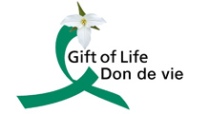A couple days ago my twitter made @kornutrition shared an article from the Globe and Mail: “The new weight-loss math”.
Reading this article made me want to bang my head forcefully onto my desk! While, this may seem like a dramatic description of my low-tolerance for medical quakery, the content of this article is yet another display of how quantitative (i.e. measurable numbers) overlooks and discounts qualitative measures of health (i.e. satiety/fulness, intuition). In other words, it doesn’t matter how hungry you feel, the numbers (calories allowance) dictate when you stop eating. Is this health or self-induced starvation?
The article introduces a new “tool” called the Body Weight Simulator which promises a more accurate way to predict a dieter’s expected weight loss over time. “ITS A MIRACLE!” [sarcasm].
We know from YEARS of research that a) dieting doesn’t work b) loosing weight seldom produces sustained health benefits and, c) being fat doesn’t mean you’re unhealthy- so why the need to lose weight? But who’s going to argue with this romanticised- medicalized- body shaming equation? Don’t we all want to be skinny and finally fit in the jeans we wore a decade ago [sarcasm]!?
What aggravates me the most about this revised calorie equation is that, instead of questioning the effectiveness of calorie counting in the first place, researchers are pouring millions of dollars back into to the diet industry and are reformulating an approach that has yet to demonstrate any benefits. Why are we pouring more money into reformulating the equation instead of revisiting the ideology that weight loss= better health.
De-constructing our hunger and eating experiences into calories reminds me of my colleague, Abbey Fitzpatrick TEDx talks. In her talk she reminds us that food is indeed more than numbers and calories but a(n) social, cultural, emotional, traditional and, sensual experience.
While I could continue this post by listing the numerous studies and reasons that’ll “prove” why this formula is oversimplistic and damaging, I’d prefer instead to provide information about an alternative and compassionate relationship we can build with our food and body. A “tool” that is number-free and already programmed in your body: INTUITION.
Intuitive eating
Intuitive eating is one of the three tenets of HAES (Health at Every Size) which emphases pleasurable eating and internal cues of hunger, satiety, and appetite rather than following rigid dietary guidelines. Take a moment to reflect on the last meal you had. Was it pleasurable? Can you describe the taste, texture and mouthfeel? Were you satistfied? If so, what did that feel like?
Having trouble answering these questions?
You are likely not alone forcing yourself through memory lane. Life gets busy and we’re surrounded my an enormous amount of noise (i.e. advertisements) and conflicting and contradictory nutrition advice that we are desperately looking for someone else to tell us what we should eat.
If the ditty that ‘you are what you eat’ is correct, why would you wait for someone else to tell YOU what to eat?
Its not too late, thankfully. Its not a diet, its not a pill and a celebrity (thus far!) isn’t going to entice you to ‘believe’ in the program.
Its being kind and compassionate to your body. Its about listening to cues- yes those grumbling noises and signals that say ‘thank you for the meal, I’m comfortably satisfied.
According to the “Intuitive Eating Pro”online organization, the 10 (ten) principle of Intuitive Eating are
1. Reject the Diet Mentality
2. Honor Your Hunger
4. Challenge the Food Police
5. Respect Your Fullness
6. Discover the Satisfaction Factor
7. Honor Your Feelings Without Using Food
8. Respect Your Body
9. Exercise–Feel the Difference
10 Honor Your Health
Who’s with me on taking back control of our health? Why let others dictate what and how much you eat? This controlling approach had been around for years and, well has it worked for you in the past?
Its time to reclaim your health. We don’t eat calories, we eat beautiful, colorful and most important, tasteful food that’s made with love.
Go ahead, eat intuitively!
Respectfully,
@julie_rochefort


 www.
www.







